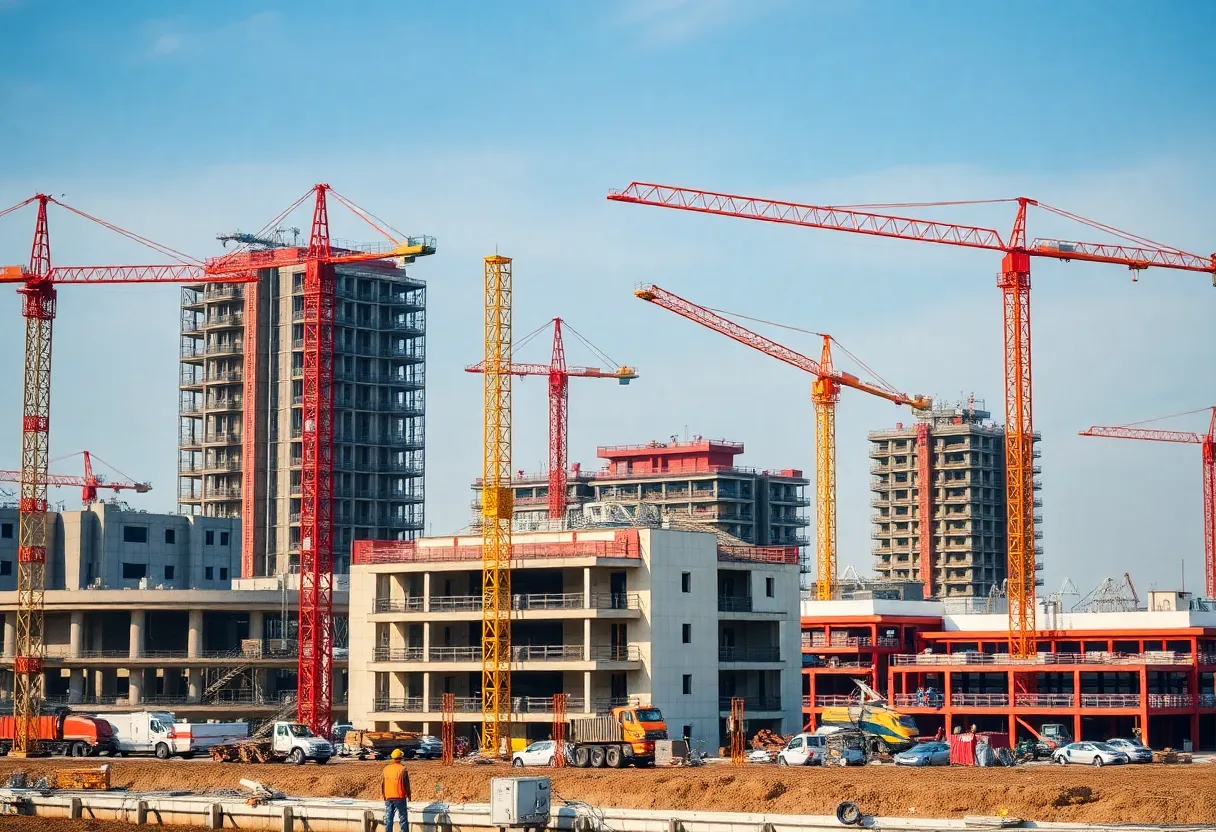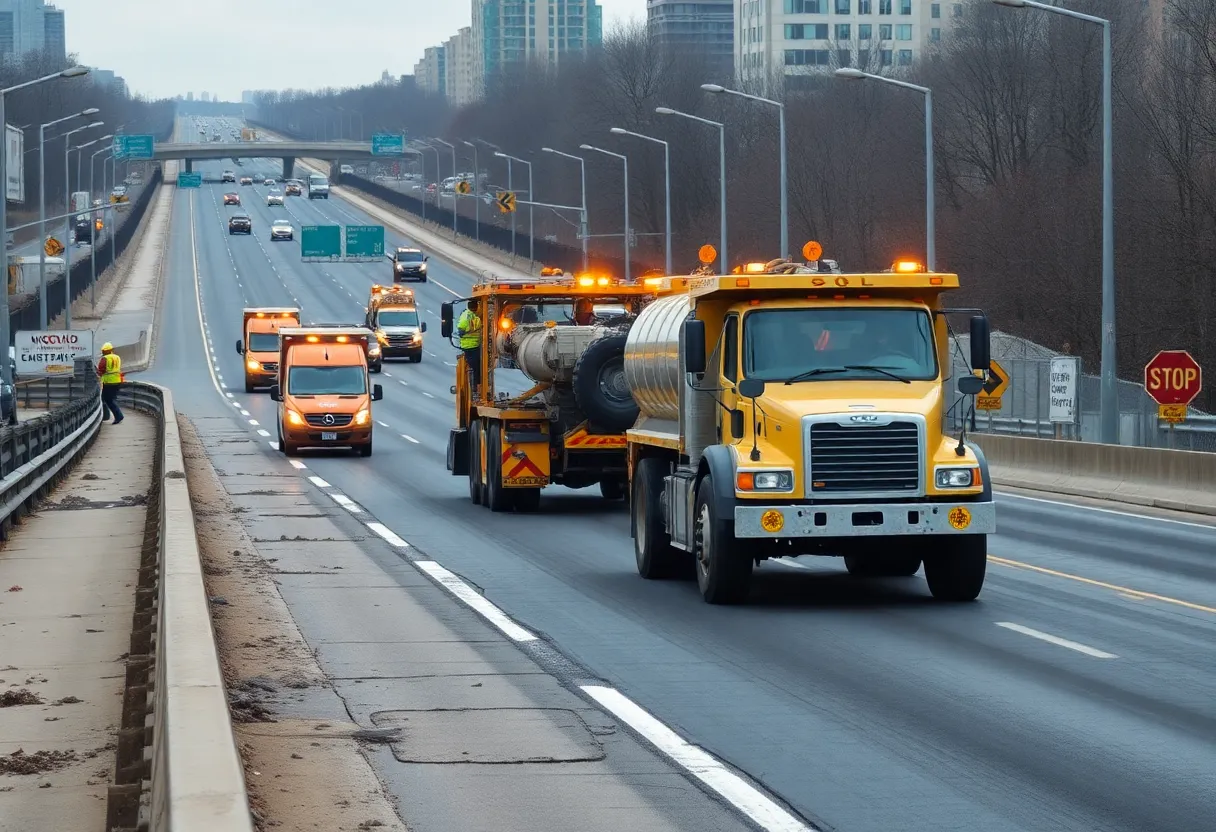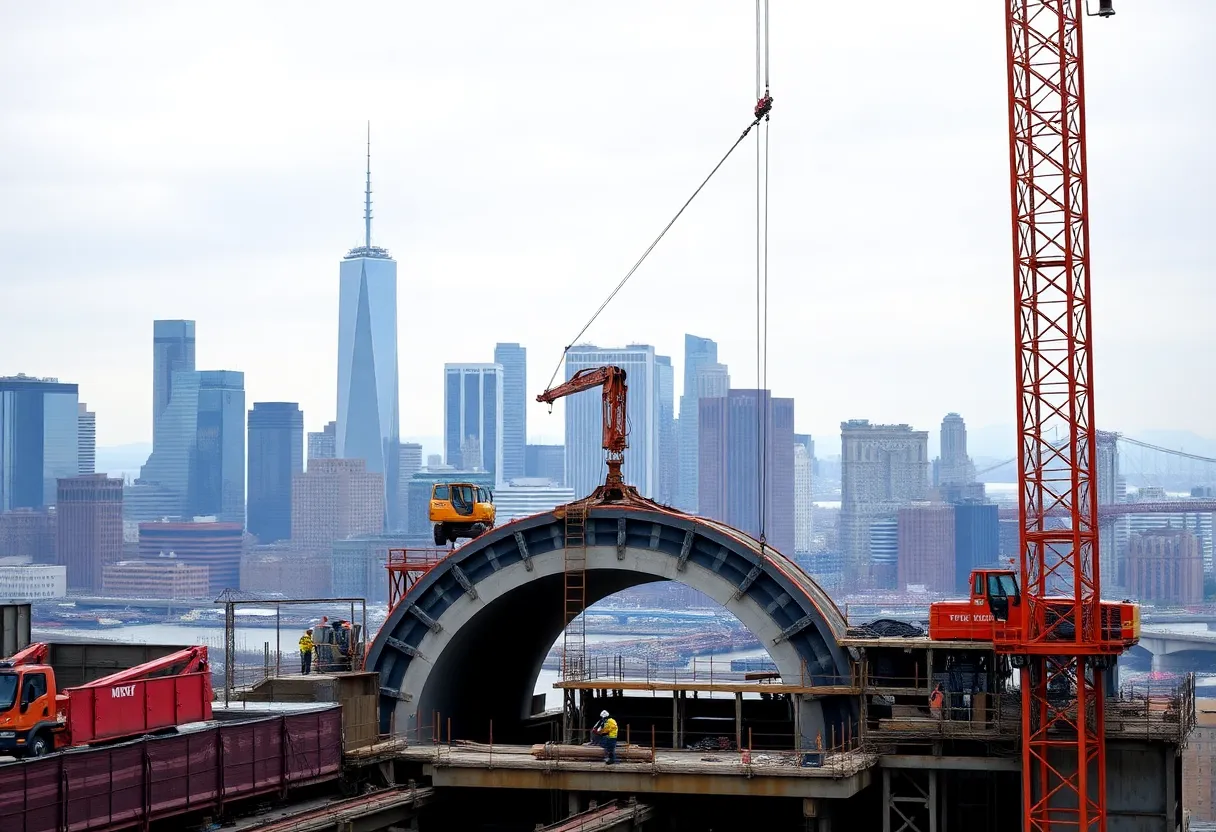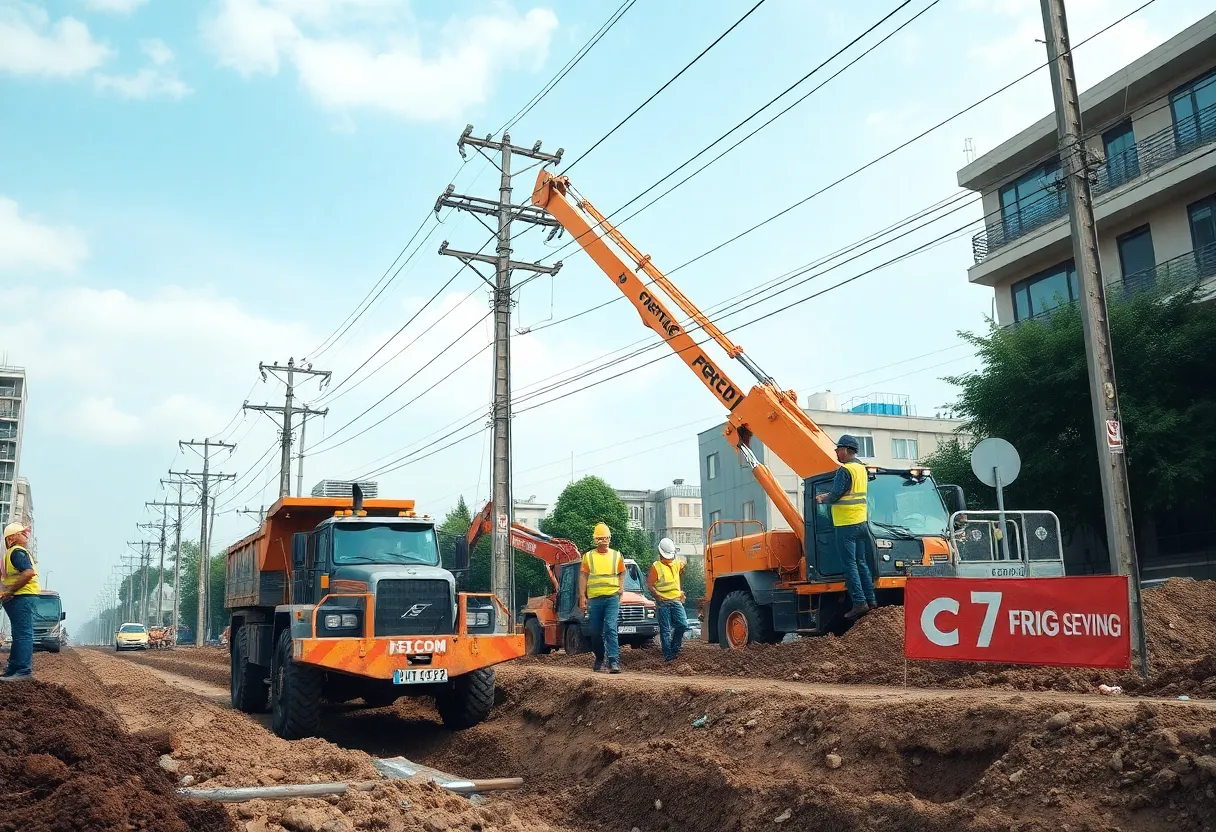News Summary
Canada has achieved a historic high in nonresidential construction starts with a total value of $77.2 billion, reflecting a remarkable 19.8% increase from previous figures. This growth primarily stemmed from five key megaprojects contributing over $30 billion to the total. As the construction industry stabilizes after recent challenges, focus is also shifting towards addressing Canada’s urgent need for new housing, with estimates suggesting up to 4.8 million homes required in the coming years. The ongoing investments signal a promising future for the sector.
Canada Hits Record High Nonresidential Construction Starts in May 2025
Canada’s nonresidential construction industry has reached a major milestone, with total construction starts soaring to a historic record high of $77.2 billion for May 2025. This impressive figure marks an increase of $12.8 billion, or 19.8%, compared to previous numbers, signaling a strong recovery and growth trend within the sector.
Positive Growth and Significant Contributions
For the first time this year, nonresidential spending has shown positive growth, rising by 6.9%. The month of May recorded the highest level of construction starts in history, fueled by five megaprojects that alone contributed over $30 billion to the total starts spending for the month. The robust activity observed indicates a surge in economic confidence and project initiations.
Megaproject Impact and Industry Shifts
Among these megaprojects, significant sectors have emerged, including Transportation Terminals, Power Plants and Lines, and Tunnels. The 12-month moving average of megaproject spending now stands at $12.3 billion, exhibiting a marked improvement from post-COVID lows. As of the end of May, a total of 27 megaprojects valued at $67.9 billion have been recorded for the year, reflecting a notable recovery from the pandemic slump, which saw an average monthly spending of only $8.4 billion in February.
The groundbreaking of the Taiwan Semiconductor Manufacturing Company’s new chip plant in Phoenix, AZ, has played a crucial role in reshaping the spending landscape. As a result of this landmark project, the manufacturing sector has catapulted from being among the bottom performers to now ranking within the top five this year.
Significance of Megaprojects
In May, megaprojects constituted a significant 39% of total nonresidential construction spending. This shift highlights the growing importance of large-scale developments in driving the industry forward. Detailed data and charts indicating the best and worst performing categories in high-dollar projects for the year can be found in the Construction Economy Snapshot, further illustrating the dynamics at play in the nonresidential sector.
Infrastructure Needs and Economic Considerations
Looking outward, Ontario builders have applauded recent federal efforts aimed at bolstering the construction industry. The Canada Mortgage and Housing Corporation has outlined a pressing need for up to 4.8 million new homes across the country, emphasizing a critical requirement for enhanced infrastructure. These requests come against a backdrop of evolving economic conditions, which are being significantly shaped by factors such as trade relations, inflation, and climate change.
Moreover, investments aimed at developing First Nations infrastructure are deemed essential not just for economic progression, but also for fostering reconciliation efforts. The potential tied to closing the infrastructure gap in First Nations communities has garnered increasing attention from policymakers, indicating that these sectors will play a pivotal role in future economic strategies.
Conclusion: Stabilization in Construction Activity
Overall, the trend in Canada’s nonresidential construction sector is clearly stabilizing after the notable declines seen during the pandemic. Current data point towards a rejuvenated market, with significant activity expected to continue as positive economic indicators emerge. The industry is poised for further growth as stakeholders respond to both current demands and future needs.
Deeper Dive: News & Info About This Topic
Additional Resources
- The Globe and Mail: First Nations Infrastructure Investments and Reconciliation
- Construction Dive: Canada Construction Impact from Trump Tariffs
- Ferrovial: Ferrovial Awarded $1.2B in Infrastructure Projects in US and Canada
- Wikipedia: Infrastructure
- Encyclopedia Britannica: Construction
Author: Construction NY News
The NEW YORK STAFF WRITER represents the experienced team at constructionnynews.com, your go-to source for actionable local news and information in New York and beyond. Specializing in "news you can use," we cover essential topics like product reviews for personal and business needs, local business directories, politics, real estate trends, neighborhood insights, and state news affecting the area—with deep expertise drawn from years of dedicated reporting and strong community input, including local press releases and business updates. We deliver top reporting on high-value events such as the New York Build Expo, infrastructure breakthroughs, and cutting-edge construction technology showcases. Our coverage extends to key organizations like the Associated General Contractors of New York State and the Building Trades Employers' Association, plus leading businesses in construction and real estate that power the local economy such as Turner Construction Company and CMiC Global. As part of the broader network, including constructioncanews.com, constructiontxnews.com, and constructionflnews.com, we provide comprehensive, credible insights into the dynamic construction landscape across multiple states.





